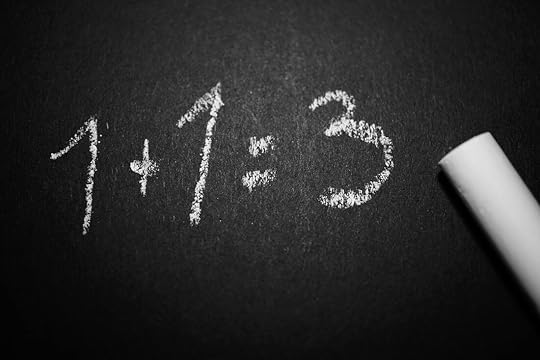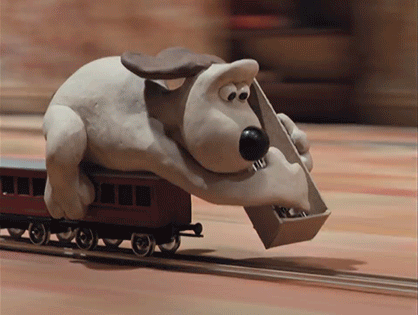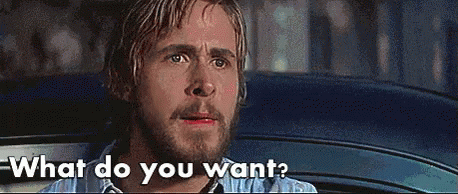What? No! I Didn't Skip a Week of Blogging...
 Okay, maybe I did. But I had a good reason. What was it? Uh, well, Ikindagottheps5andendedupplayingitallweekend. Okay. There, I said it. Happy? Anyway, I'm back. And it's almost Thanksgiving! I can already taste the mashed potatoes. This month I've been trying to blend together things I'm thankful for with things about me. I've also tried to really hammer home a bit of my personality (read: all over the place, thinks he's funny, and also, all over the place). But I think this one is going to be a little different. I'm thankful for my family, my friends, my cats, the person reading this, and so on, but there would never be enough time to go through every person I'm thankful for. I'd have either a novel of a blog post or I'd still be doing thankfulness blogs by the time next Thanksgiving rolled around. So, I'm going to focus on the other half. A bit about me as a writer. I often hear writers talking about where they struggle with writing, but I hear less about where the excel. And while it's great to commiserate over where you suck, I think it would help a lot with imposter syndrome and the overall confidence posture of new writers if they were encouraged to talk more about what they are good at. So imma do both. Because it's my blog. And encourage anyone who reads this to do the same. Bit of advice though...do the stuff you're good at AFTER the stuff you think needs work. Pays dividends to end on a high note. P.S. It's a list...TWO lists.
Could Use Improvement
Okay, maybe I did. But I had a good reason. What was it? Uh, well, Ikindagottheps5andendedupplayingitallweekend. Okay. There, I said it. Happy? Anyway, I'm back. And it's almost Thanksgiving! I can already taste the mashed potatoes. This month I've been trying to blend together things I'm thankful for with things about me. I've also tried to really hammer home a bit of my personality (read: all over the place, thinks he's funny, and also, all over the place). But I think this one is going to be a little different. I'm thankful for my family, my friends, my cats, the person reading this, and so on, but there would never be enough time to go through every person I'm thankful for. I'd have either a novel of a blog post or I'd still be doing thankfulness blogs by the time next Thanksgiving rolled around. So, I'm going to focus on the other half. A bit about me as a writer. I often hear writers talking about where they struggle with writing, but I hear less about where the excel. And while it's great to commiserate over where you suck, I think it would help a lot with imposter syndrome and the overall confidence posture of new writers if they were encouraged to talk more about what they are good at. So imma do both. Because it's my blog. And encourage anyone who reads this to do the same. Bit of advice though...do the stuff you're good at AFTER the stuff you think needs work. Pays dividends to end on a high note. P.S. It's a list...TWO lists.
Could Use Improvement
I don't like saying that anyone is "bad" at things in writing. Some people may disagree with that statement. And I can certainly point to a few questions where it has been a struggle to use a nicer turn of phrase. Saying you're bad at something implies an inherent inability to do it well. And writing, like anything, can be learned and improved. So here are three places I know that I can use (and am trying) to improve in.
1) Plotting: I am a panster. I probably could leave this entire point as that statement, but I won't. When I start a story, I have (usually) a character, an idea, an ending, and a setting. And not much else. I'm this as I write...
 ...always. And while this works for me (I've finished two books this way), it also presents challenges (I'm stalled on two books because of it). Since I only know where I'm going and not how I'm going to get there, sometimes I get stuck or sometimes I write a whole bunch of loop-de-loops that eventually get me back on track but bloat the story. These often get taken care of in edits, but it makes the editing portion that much more difficult and when I par them down/cut them out I still get stuck with how to get from Point A to Point B. It can slow down the writing process and also can mess with the pacing of a story. I'm slowly trying to mold myself into more of a plantser to fix this problem but my aggressive rejection of all things organizational makes it difficult. What the hell even is an outline anyway, am I right?
...always. And while this works for me (I've finished two books this way), it also presents challenges (I'm stalled on two books because of it). Since I only know where I'm going and not how I'm going to get there, sometimes I get stuck or sometimes I write a whole bunch of loop-de-loops that eventually get me back on track but bloat the story. These often get taken care of in edits, but it makes the editing portion that much more difficult and when I par them down/cut them out I still get stuck with how to get from Point A to Point B. It can slow down the writing process and also can mess with the pacing of a story. I'm slowly trying to mold myself into more of a plantser to fix this problem but my aggressive rejection of all things organizational makes it difficult. What the hell even is an outline anyway, am I right?2) Editing: I'm really bad at editing. When I finish something, no matter how long I set it away for, when I come back, I can't see the problems. Not there aren't any. God knows there are, but it's still my thought process, my logic. Which I can follow. So it just...makes sense. Often times I rely on my beta-readers to be the ones to call the broken pieces to my attention. And I have conversations like:
"This doesn't work because X"
"Oh, but my thought process was this."
"Yeah that wasn't clear"
"Oh"
Not only do I struggle with seeing through my own logic, but an edit for me is almost always a rewrite. I know there are people who only edit the broken chunks, but it doesn't work for me. Because now, in my head, that section stands out. For better or worse. So I have to fix everything around it, and then everything around that. You see where this is going. It eats time. I've tried plenty of strategies and tried doing it differently, but at the end of the day, it's what works for me. I don't think it's the best way to go about it and hope I will find a more efficient way (I'm currently reading a book on editing, so maybe) but who knows.
3) Small Scale Motivation:
 I am pretty good at the large scale motivations: "this character wants to survive", "this character wants the girl", "this character revels in the explosive vortex of chaos". But scene by scene, piece by piece...I struggle. Chances are that if I rewrite a scene, it's because it just doesn't fit a character's motivation. And it happens a lot. Because sure, maybe they want to survive, but that's an overall goal. When they're sitting around a campfire with the group that picked them up, what do they want then. Their survival needs are being met. So that minutiae, those small personal desires often elude me. I find myself spending more time on character backstory than will ever be revealed in context in order to ensure that my character always has active desires. They don't come naturally to me, I guess. I have to craft them and it can be a struggle.
I am pretty good at the large scale motivations: "this character wants to survive", "this character wants the girl", "this character revels in the explosive vortex of chaos". But scene by scene, piece by piece...I struggle. Chances are that if I rewrite a scene, it's because it just doesn't fit a character's motivation. And it happens a lot. Because sure, maybe they want to survive, but that's an overall goal. When they're sitting around a campfire with the group that picked them up, what do they want then. Their survival needs are being met. So that minutiae, those small personal desires often elude me. I find myself spending more time on character backstory than will ever be revealed in context in order to ensure that my character always has active desires. They don't come naturally to me, I guess. I have to craft them and it can be a struggle. The Good Stuff
Make no mistake. When I say "I'm good at this" I am not claiming to be the end all be all. No one is. No one should. I'm just saying I'm damn proud of my ability to write these particular aspects of a story. I've got a lot to learn, and always will. And I'll never be perfect. I'll just be a little bit better than I was before. And a little better the next time, and so on.
1) Dialogue: I love snappy dialogue. A great one liner can take a character from meh, to awesome in my book. When it comes to movies, if the dialogue sucks, that's the biggest detractor for me. I sat through all the Sharknado movies in some part because the dialogue was surprisingly good for something so nonsensical. But characters like Mal Reynolds ("If anything happens to her, anything at all, I swear to you, I will get very choked up. Honestly, there could be tears."), Han Solo ("No reward is worth this.", Ellen Ripley ("Get away from her you bitch!", and Jules Winnfield ("If my answers frighten you, then you should cease asking scary questions.") alongside the entirety of The Princess Bride and Pirates of the Caribbean: Curse of the Black Pearl owe to my desire and ability to write dialogue. And I think I've learned pretty well. Not every line of dialogue should be a burning one-liner, but every line has a mark it needs to hit. Note: These are all movie examples, mostly because my brain remembers movie quotes three times as well as book quotes, but the point stands. Dialogue is probably where I spend a large portion of my editing time. Because I want it to feel right. To hit that mark. If bad dialogue ruins things for me, surely it'll ruin things for readers. So I've gotten good at it.
2) Character Relationships: This does tie up into dialogue, since dialogue is the simplest way to show how characters interact, but beyond that I think I do a good job at showing how relationships grow together or grow apart. The plot may be what is happening to and around my characters, but the story progresses based on how the characters interact with each other. If the hero and villain realize they agree halfway through the novel, that's an entirely different story than if the villain tries to seduce the hero and gets rebuffed in the process (yes, I can hear you saying "duh"). My point is that being able to craft character relationships and navigate them adds depth to a story. I point to the relationships between Will Turner and Jack Sparrow, or Loki and Thor, or the Father and Son in Big Fish. All complicated relationships. All a driving force in the plots of their respective stories. I try to really pin down how characters would feel about each other based on their life experiences. For example, in my current WIP, there is a soldier who gets stuck escorting a civilian. At first he's irritated and treats the civilian dismissively because he views him as a liability. Once the civilian proves his usefulness and his bravery, the irritation turns to respect. A simple example for sure, but still. Not every relationship needs to be complicated, some relationships are pretty low maintenance and easy to navigate.
3) Action: You've probably guessed by now that I'm big into movies. I love them. I also love anime. When storytelling I often try and approach things from a cinematic point of view. I ask myself, "how would this look in a movie or anime?", and fabricating that scene allows me to write down what I "see". Not only does it help me write, but I do think it makes action scenes in particular read well in my writing. They come across as high-energy, quick-paced, and exciting. While this visualization may not mechanically describe exactly what is happening in an action sequence, it gets the point across and drags the reader in. Most of my beta readers point out how well my action sequences go and how engaging they are. So I'm inclined to believe them and list it under this section.
So these are some of my strengths and weaknesses in the writing craft. There are certainly more things that I could include under each. I think we should encourage writers to talk about their strengths as much as we do their weaknesses. So what are some of yours? Where do you shine as a writer? Vaughn A. Jackson
Vaughn is a neophyte author of speculative fiction. His debut novel TOUCHED BY SHADOWS will be released via JournalStone publishing on September 24, 2021.
Published on November 22, 2020 15:00
No comments have been added yet.



